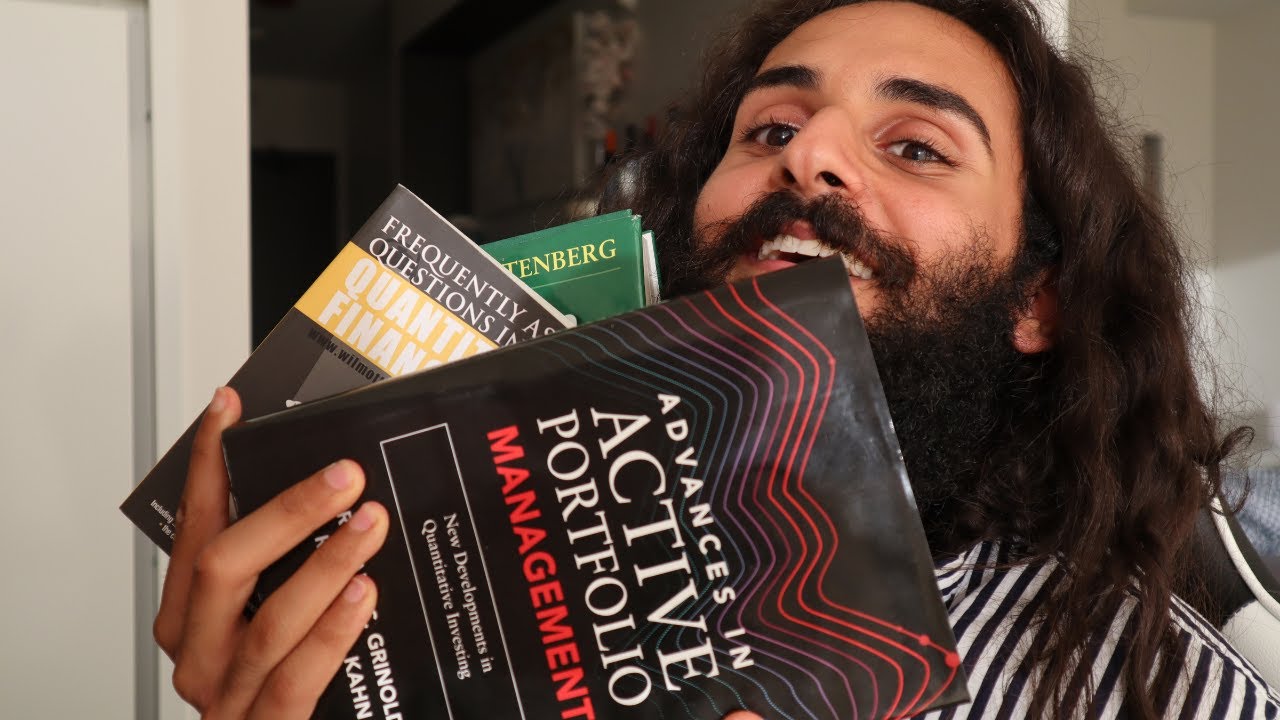I've read over 100 coding books. Here's what I learned
Summary
TLDRIn this video, the speaker shares five key insights for effectively learning coding or any technical subject from books. They emphasize that no single book is perfect and recommend limiting yourself to three carefully chosen titles. Active practice is essential—readers should run, modify, and experiment with code while taking notes and tackling challenging exercises. The speaker also stresses the importance of setting realistic expectations, focusing on understanding concepts rather than memorization. Interactive platforms like Brilliant are highlighted as valuable tools to reinforce learning and build practical skills in a hands-on, engaging way.
Takeaways
- 📚 The perfect technical book doesn't exist; every book makes assumptions about the reader's knowledge and goals.
- 🔍 Choose books that match your skill level and learning objectives, knowing that no book will be perfect for every reader.
- 🛑 Limit yourself to a maximum of three books at a time to avoid distraction and focus on learning.
- 💻 Actively engage with the material by running code, experimenting, and modifying snippets to understand them deeply.
- 📝 Keep a notebook to take notes, track concepts, and highlight areas you want to explore further.
- 🧩 Attempt exercises, especially the difficult ones, to challenge yourself and reinforce learning.
- ⏳ Set realistic expectations regarding time; large technical books take months, not days, to fully absorb.
- 🧠 Focus on understanding concepts rather than memorizing content, and revisit sections you don’t understand.
- 🌐 Use interactive platforms like Brilliant.org to complement book learning, with short, hands-on exercises for better retention.
- 🤝 Don't hesitate to research further or ask for help when a concept is unclear; deep comprehension is the goal.
- ⚡ Learning coding is iterative: try, break, change, and improve code to gain practical understanding and problem-solving skills.
Q & A
WhyScript analysis Q&A does the speaker claim that the perfect technical book doesn't exist?
-The speaker argues that books either go too deep or are too basic and that authors make assumptions about the reader's knowledge, which may not match the learner's background or goals.
What strategy does the speaker suggest for selecting books to learn coding?
-The speaker recommends limiting yourself to three carefully chosen books to avoid wasting time searching for the 'perfect' book and to focus on actual learning.
Why is active practice emphasized over just reading in the transcript?
-Active practice helps solidify understanding: trying code snippets, experimenting with changes, breaking code, and solving exercises ensures learners grasp the concepts rather than passively reading.
What is the importance of trying code snippets on your computer?
-Running and experimenting with code allows learners to understand how it works, observe the effects of modifications, and develop problem-solving and debugging skills.
How does the speaker suggest handling exercises at the end of book chapters?
-Transcript Q&A AnalysisThe speaker advises attempting all exercises, especially the more challenging ones, rather than only the easy ones, to push understanding and reinforce learning.
What mindset does the speaker recommend regarding reading large technical books?
-The speaker emphasizes realistic expectations: learning from a technical book takes time, and the focus should be on understanding concepts rather than rushing to finish or memorizing content.
Why are notes important when learning from a technical book?
-Notes help retain key concepts, provide reference for topics that need more review, and ensure that understanding is prioritized over memorization.
What role do interactive platforms like Brilliant play in learning coding?
-Interactive platforms supplement book learning by offering hands-on exercises, concept reinforcement, and opportunities to practice problem-solving in a structured and engaging way.
What is the speaker's advice if a concept in the book is not understood?
-The speaker recommends researching the topic further, asking others for help, or using additional resources until the concept is fully understood, rather than skipping over it.
How much time does the speaker suggest dedicating daily to interactive learning?
-Even 10–20 minutes a day on an interactive platform can significantly enhance understanding and reinforce the concepts learned from the book.
Why does the speaker mention different types of books (beginner-friendly, computer-science-focused, technical)?
-This illustrates that each book serves a different audience and purpose, and choosing a book should align with the learner's goals, background, and level of experience.
What does the speaker mean by 'get it to work and then break it' regarding coding practice?
-This approach encourages experimentation: first ensuring the code functions as intended, then modifying it to test understanding, discover limitations, and learn debugging strategies.
Outlines

Esta sección está disponible solo para usuarios con suscripción. Por favor, mejora tu plan para acceder a esta parte.
Mejorar ahoraMindmap

Esta sección está disponible solo para usuarios con suscripción. Por favor, mejora tu plan para acceder a esta parte.
Mejorar ahoraKeywords

Esta sección está disponible solo para usuarios con suscripción. Por favor, mejora tu plan para acceder a esta parte.
Mejorar ahoraHighlights

Esta sección está disponible solo para usuarios con suscripción. Por favor, mejora tu plan para acceder a esta parte.
Mejorar ahoraTranscripts

Esta sección está disponible solo para usuarios con suscripción. Por favor, mejora tu plan para acceder a esta parte.
Mejorar ahoraVer Más Videos Relacionados

BAHASA INGGRIS bagi programmer | My Story & Tips

Ultimate AI ML Roadmap for beginners

Everything you need to know to become a quant trader (top 5 books)

7 Melhores Livros de Copywriting

I Learned Java in 14 Days using THIS Framework (learn any language!)

One Effective Trick to Learn Coding Fast (Works in 2024)
5.0 / 5 (0 votes)
